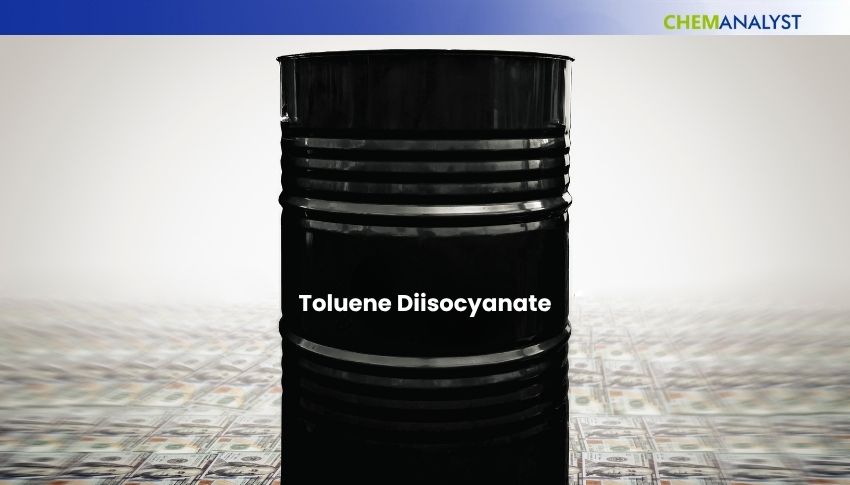Welcome To ChemAnalyst

At the start of Q3 2025, Toluene Diisocyanate (TDI) prices in Europe declined amid moderate production and lower feedstock costs, driven by easing crude oil prices. However, supply was constrained due to labor shortages, port strikes, and rising logistics costs. Demand remained mixed—automotive sales dropped in Western Europe, impacting PU usage, while the UK market showed resilience. Construction-related demand stayed weak. Despite these challenges, TDI prices are expected to rise in early Q3, supported by seasonal demand for coatings and limited supply due to summer-related production slowdowns and workforce shortages.
At the beginning of Qx xxxx, Toluene Diisocyanate (TDI) prices in Europe declined amid moderate production rates and decline in production costs. However, supply rates were affected by labor shortages, and rising transport costs. Meanwhile, demand remained mixed as automotive sales dropped in Western Europe, reducing TDI use in polyurethane car parts, while the UK saw stronger sales that supported local demand. Construction-related PU demand also stayed weak. Despite this, TDI prices are expected to rise in the first half of Qx, due to seasonal rise in demand for coatings.
TDI production rates were moderate in the region, influenced by fluctuations in feedstock toluene supplies. These swings were driven by affected production rates amid uncertainty in global crude oil supplies due to earlier geopolitical tensions in the Middle East. However, feedstock toluene prices eased after a sharp drop in crude oil prices,...
We use cookies to deliver the best possible experience on our website. To learn more, visit our Privacy Policy. By continuing to use this site or by closing this box, you consent to our use of cookies. More info.
